Due to their complex and global nature, environmental problems such as climate change, water scarcity or mass extinctions can be overwhelming and scary. Many individuals who care about people and the planet are left wondering: “What am I to do?” To tackle this question, Jeanette Pope, geology and environmental geoscience professor, designed the first-year seminar course: Campus Sustainability 101. It explores theoretical concepts in sustainability studies and considers how to put these ideas into practice. Students critically examine crucial ideas central to the concept of “sustain” (as in “to make last”) through readings and discussion. Examples of these ideas include markers of environmental quality; the role of social justice; and organizational principles of systems-thinking. The seminar also includes learning at the Ullem Campus Farm, where students support sustainable agricultural practices and then respond to writing prompts through which they make connections between theory and practice. Through this course, students learn how to incorporate sustainability practices into their own lives and how to participate in positive change at a local, regional and even global scale.
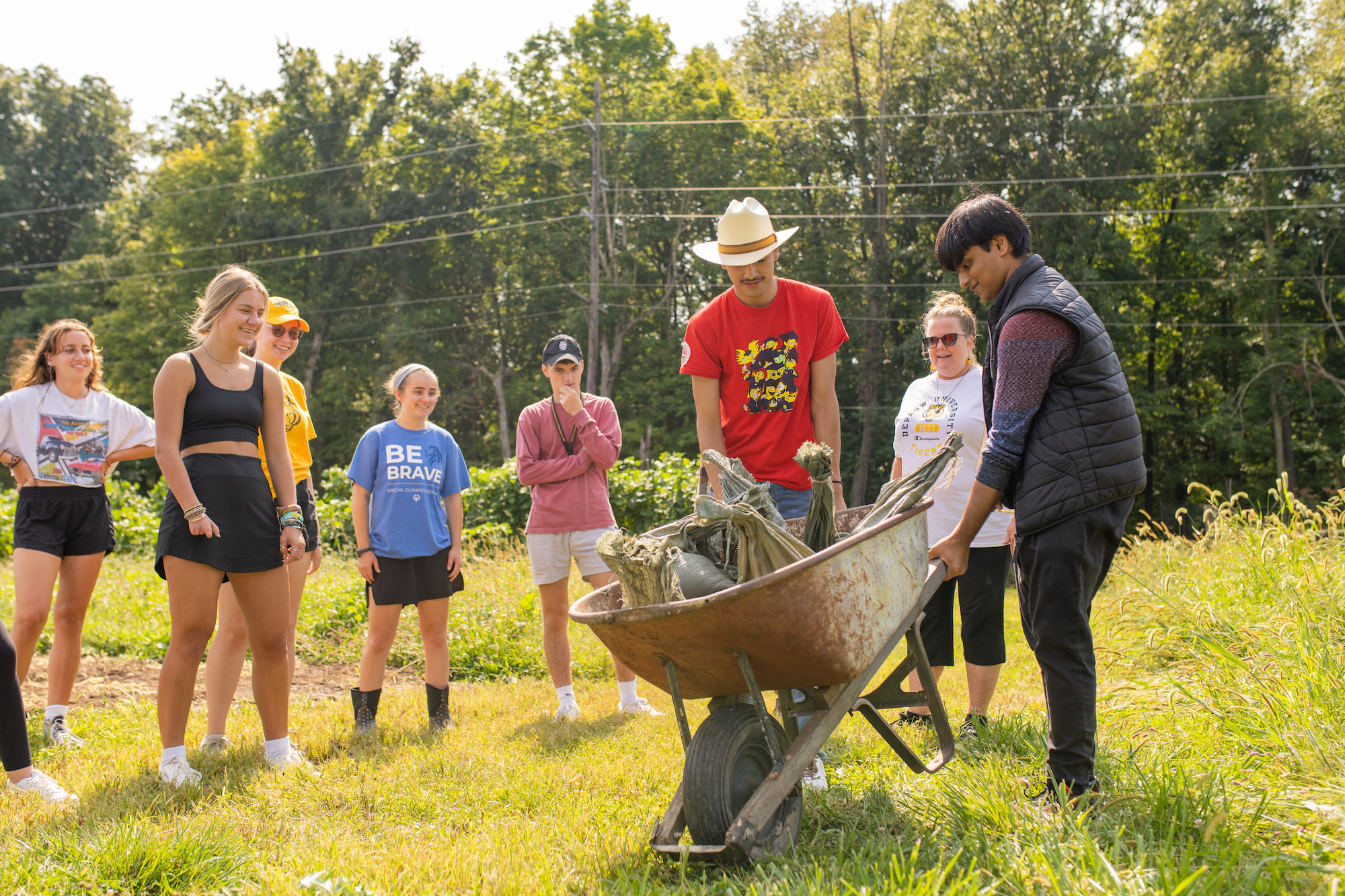
Students work together to balance the wheelbarrow and move heavy sandbags used to hold down the tarps used for solarization.
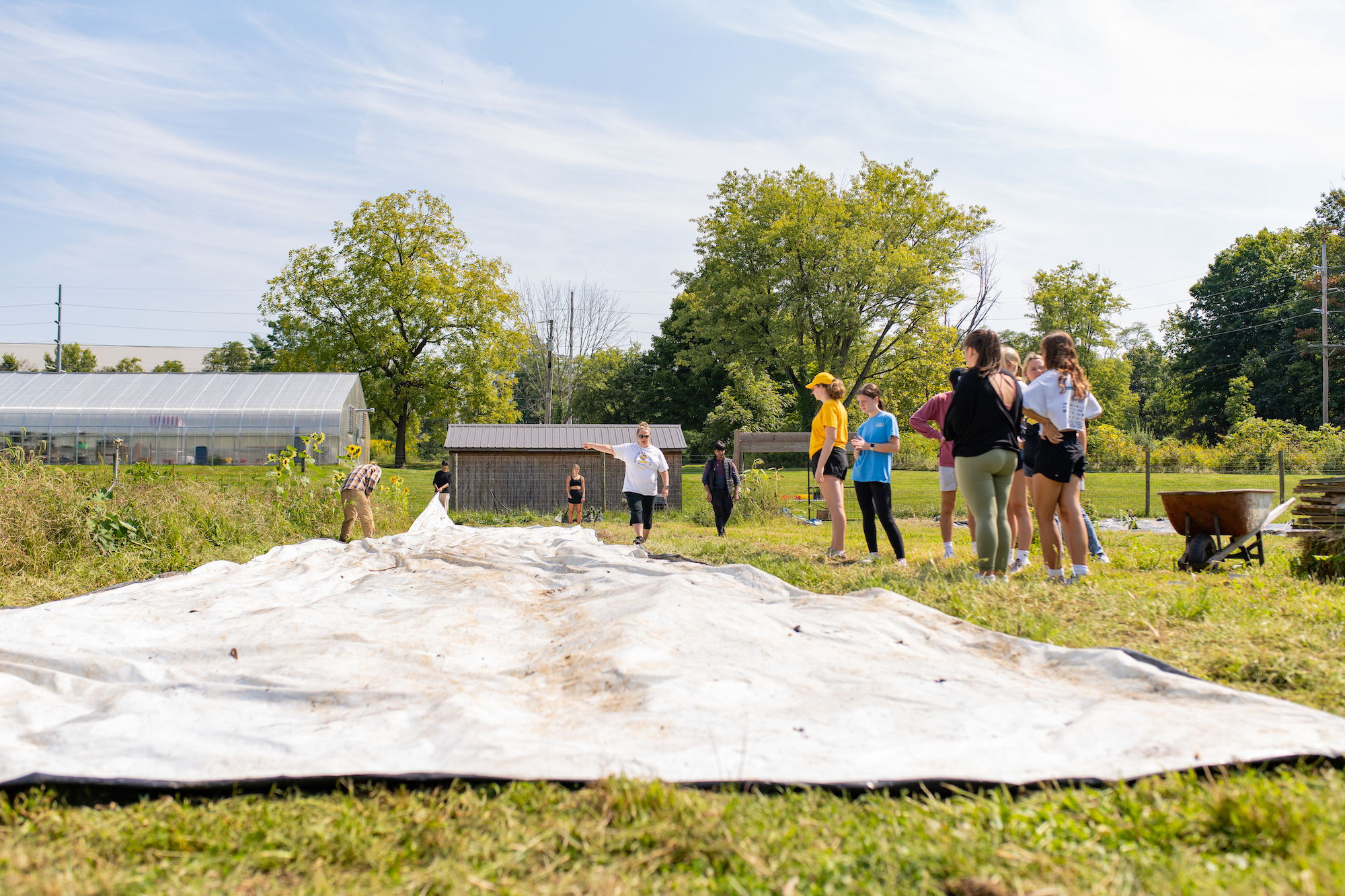
The large tarps used by Ullem Farm warm the soil to promote weed germination* while cutting off light so that weeds can’t grow; this is an organic process of weed control called solarization. However, the large tarps are heavy and difficult to move without the students’ coordinated teamwork.
*Basically, the tarps warm the soil, which causes the seeds to open and start the growth process; this always happens underground in the dark, so it doesn’t require sunlight. Rather, the seeds contain enough stored energy to support plant growth for a little while (the amount of time depends on the plants; FYI – this is why seeds and nuts are so nutritious!). However, once the shoots emerge, the plant metabolism switches over to photosynthesis. So, by the tarps blocking the light, that process can’t occur, and the plants die. This duel process – promoting germination (aka the start of the process) but blocking light (preventing photosynthesis) is what makes them so effective because, without the heat, the seeds would just lie dormant until the tarp is removed, and then start to grow when the crops are planted, which interferes with crop growth. This whole process is called “solarization.”
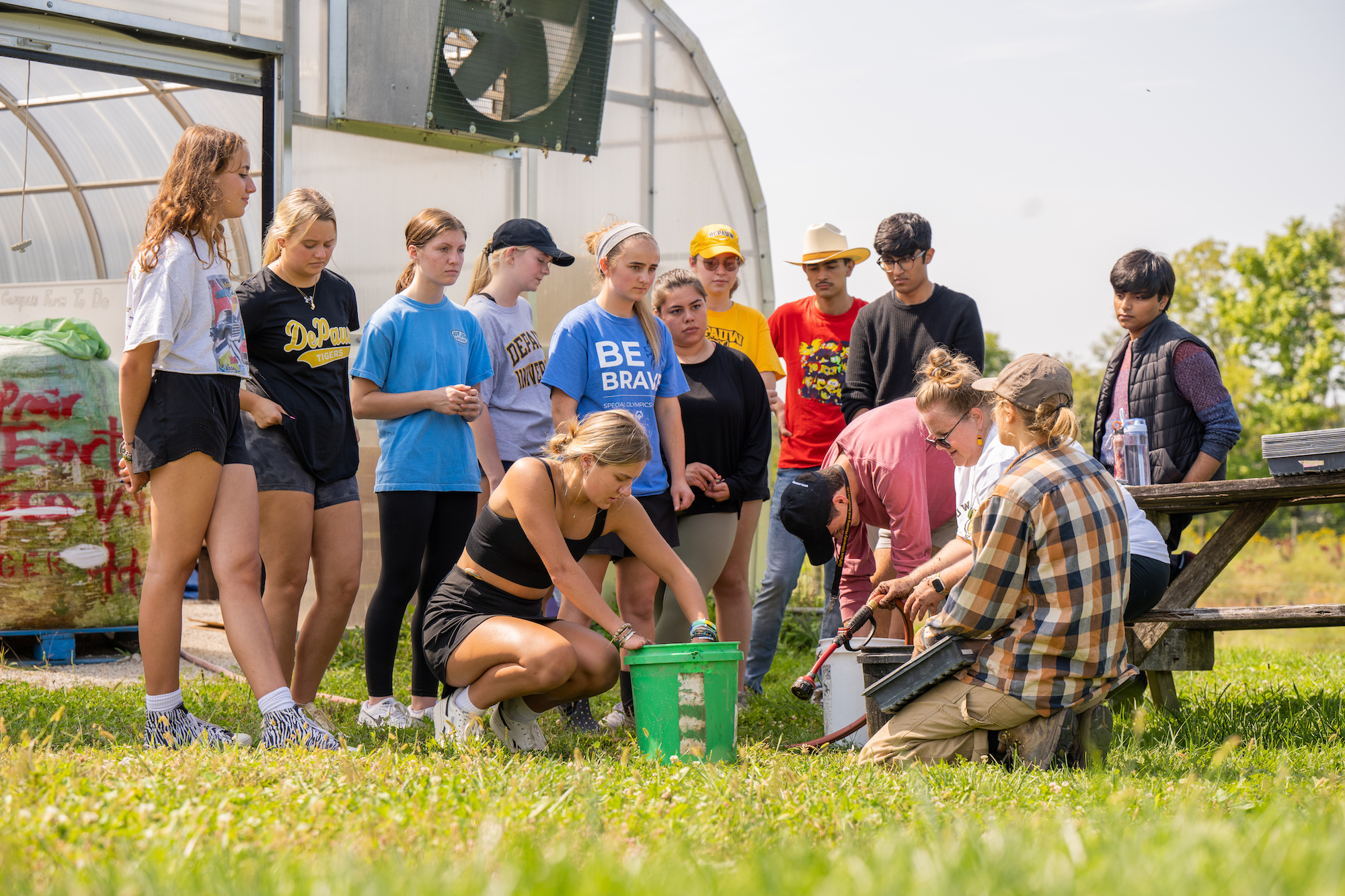
Ullem Farm manager Catherine Fisher explains the hydro-phobic properties of soil while a student slowly mixes water with the planting material to moisten it before planting.
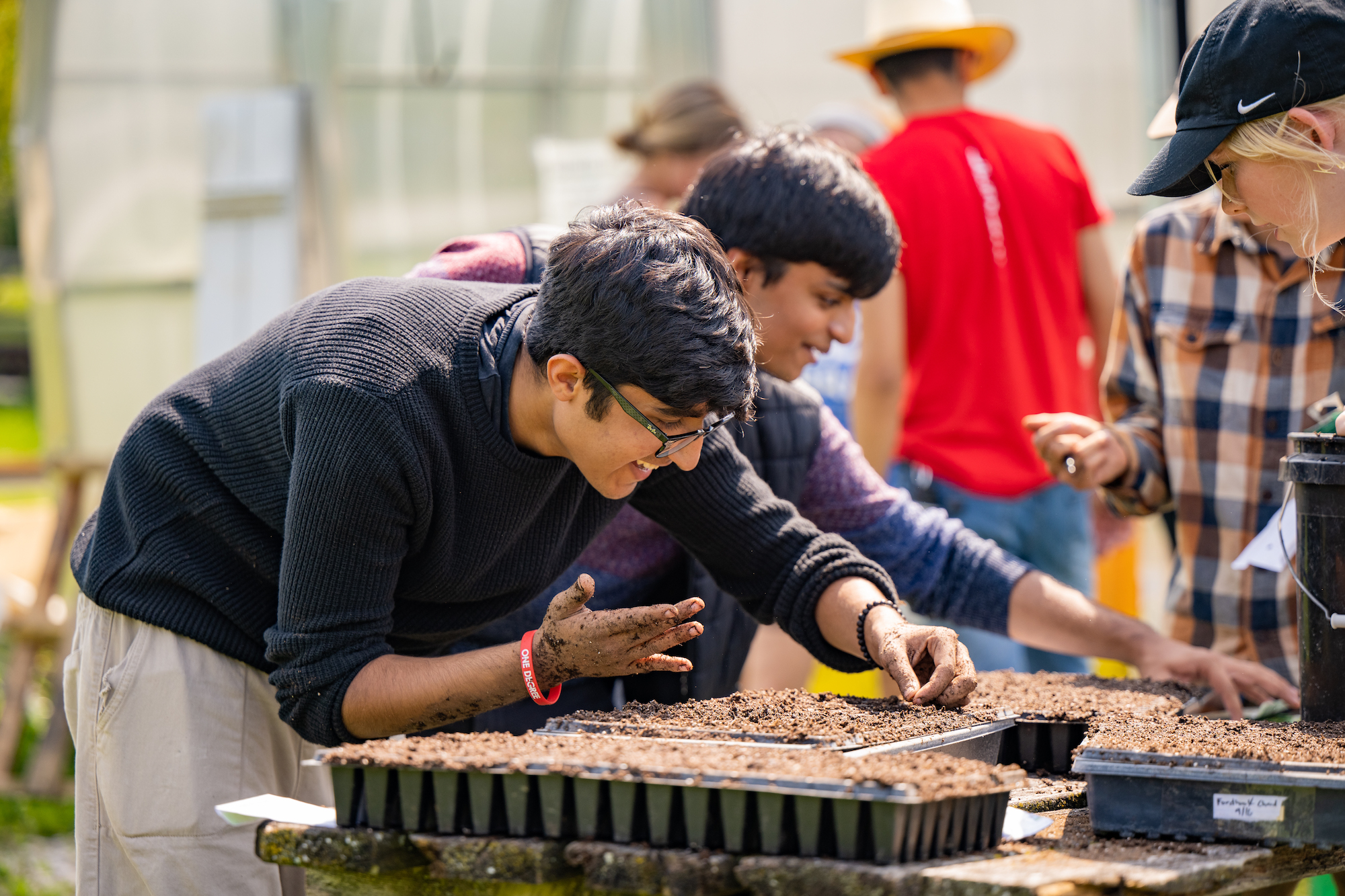
Literally getting their hands dirty, students plant spinach, chard, kale and salad mix for a fall harvest.
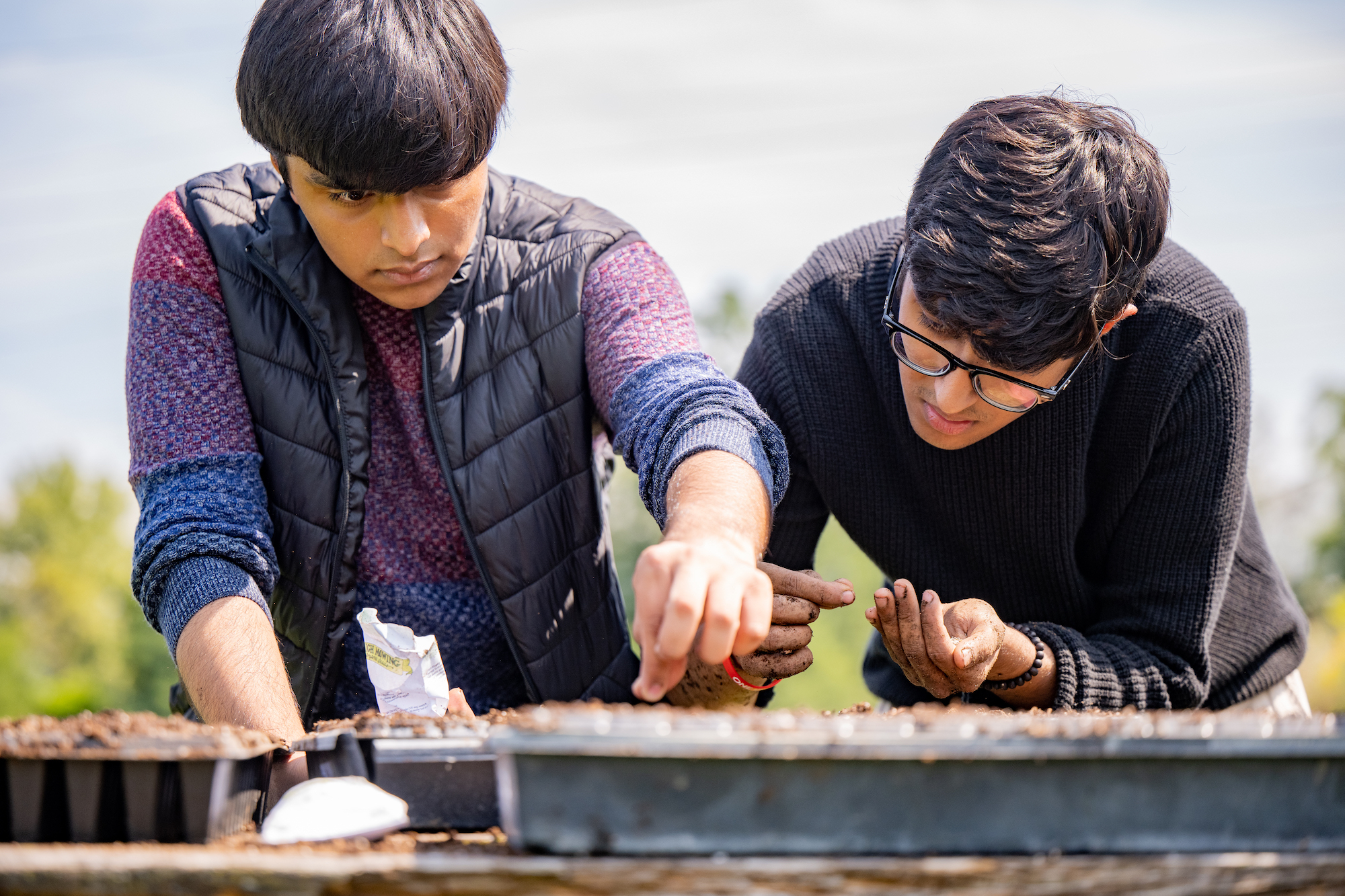
Tiny seeds must be carefully placed to a soil depth of a half-inch to ensure that they have the right conditions for growth.
Browse other stories
-
Athletics
-
Men's Basketball - Tigers Earn NABC Team Academic Excellence Award; Five Student-Athletes Named to Honor Court
-
Baseball - Allen Resigns as DePauw Baseball Head Coach
-
Women's Lacrosse - Seven Tigers Named to IWLCA Academic Honor Roll
More Athletics
-
-
News
-
Professor John Dittmer leaves legacy of scholarship and empathy
-
Hallward-Driemeier ’89 reflects on a life of blessing others
-
Daniel Mendoza ’01 awarded honorary doctorate
More News
-
-
People & Profiles
-
11 alums make list of influential Hoosiers
-
DePauw welcomes Dr. Manal Shalaby as Fulbright Scholar-in-Residence
-
DePauw Names New Vice President for Communications and Strategy and Chief of Staff
More People & Profiles
-
-
Have a story idea?
Whether we are writing about the intellectual challenge of our classrooms, a campus life that builds leadership, incredible faculty achievements or the seemingly endless stories of alumni success, we think DePauw has some fun stories to tell.
-
Communications & Marketing
101 E. Seminary St.
Greencastle, IN, 46135-0037
communicate@depauw.eduNews and Media
-
News media: For help with a story, contact:
Bob Weaver, Senior Director of Communications.
bobweaver@depauw.edu.